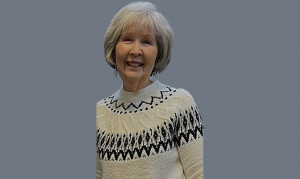Back in 1966, Bobby Fuller sang about, “Robbin’ people with a six-gun, I fought the law and the law won.” And rightfully so: Robbery is a crime. But what happens when it’s the law doing the robbing and the law wins?
Civil asset forfeiture is supposed to be a process in which law enforcement agencies seize property and cash they have reason to believe were involved in a crime. A spate of stories from around the nation, however, reveals that too often, it’s a matter of “policing for profit:” seizing property and money of innocent people because agencies benefit directly from the proceeds.
For years, the Georgia Public Policy Foundation and the Institute for Justice have highlighted this egregious miscarriage of justice, abuse of Georgians’ civil rights and the goodies going to law enforcement agencies. The required “Equitable Sharing Agreement and Certification” reports about seized property reveal astonishing value and questionable degrees of specificity that suggest vagueness is deliberate.
Most reports have two disposition categories:
• “Retained for official use.” (In 2013, Atlanta seized eight vehicles, including a 2012 Mercedes SLK350, “for department use.”)
• “Sold at Sheriff’s sale, proceeds distributed in accordance with court order.”
Rarely seen: “Property returned to owner.”
Nobody is under the illusion that everyone stopped and searched by police or sheriff’s deputies is innocent. But they should be proven guilty of the crime of which they are accused. Seizing the property of individuals who have not been convicted, let alone indicted, is a travesty of justice. And – as recent reports have highlighted – it’s sometimes nothing more than highway robbery.
According to The New York Times, there are even police seminars that teach how to maximize profits: “The seminars offered police officers some useful tips on seizing property from suspected criminals. Don’t bother with jewelry (too hard to dispose of) and computers (‘everybody’s got one already’), the experts counseled. Do go after flat screen TVs, cash and cars. Especially nice cars.”
Last year, someone called the Foundation for guidance. His girlfriend was driving his mother’s car in a metro Atlanta county when an officer pulled them over for a “rolling stop” violation. In summary: Heated words were exchanged, the car was searched for drugs, officers found an old Xanax pill on the floor and seized his mother’s car.
Thursday, a woman told the Foundation about a girlfriend still fighting for justice. The girlfriend’s furniture and vehicles were seized in 2013 and sold at a sheriff’s sale after her female roommate was convicted. The county’s report still shows no record of seized vehicles, but shows a TV stand and dining room and bedroom furniture were sold.
The list goes on. Landlords find their houses seized because tenants sold drugs; cash is confiscated from people driving in the wrong area. In many cases, victims of this heavyhanded approach don’t have the funds for an attorney to fight for the return of their property.
This past legislative session saw the Georgia Sheriffs Association fight tooth and nail to protect the ability to seize property from people without meeting a higher standard of proof in showing that the items were being used in the furtherance of criminal activity. A tougher law, one sheriff argued, “unnecessarily complicates the state’s existing seizure and forfeiture laws.”
It’s not complicated. If law enforcement complains about insufficient funds to do the job, the solution is not to pad budgets with seized property. Allowing agencies to profit from their policing remains the problem.
Seizure should be justified only in the case of a conviction. To dissuade cherry-picking property, proceeds should go to the general treasury to be disbursed to law enforcement agencies.
Too many Georgians – innocent and unable to fight back – are hurt by the long arm and sticky fingers of the law. It’s a cop-out to argue against a tougher burden of proof. It’s time to ensure that the officers’ pledge to “protect and serve” covers citizens, not their agencies.
[Benita M. Dodd is vice president of the Georgia Public Policy Foundation, an independent, state-focused think tank that proposes market-oriented approaches to public policy to improve the lives of Georgians.]











Leave a Comment
You must be logged in to post a comment.